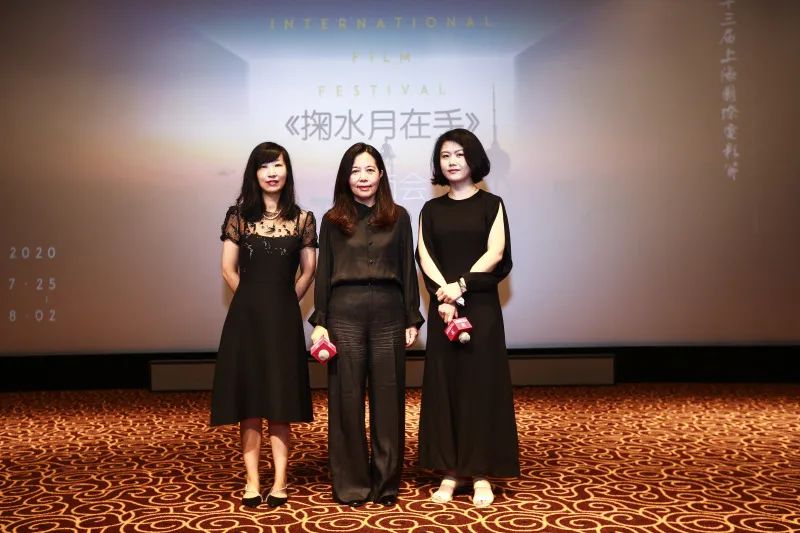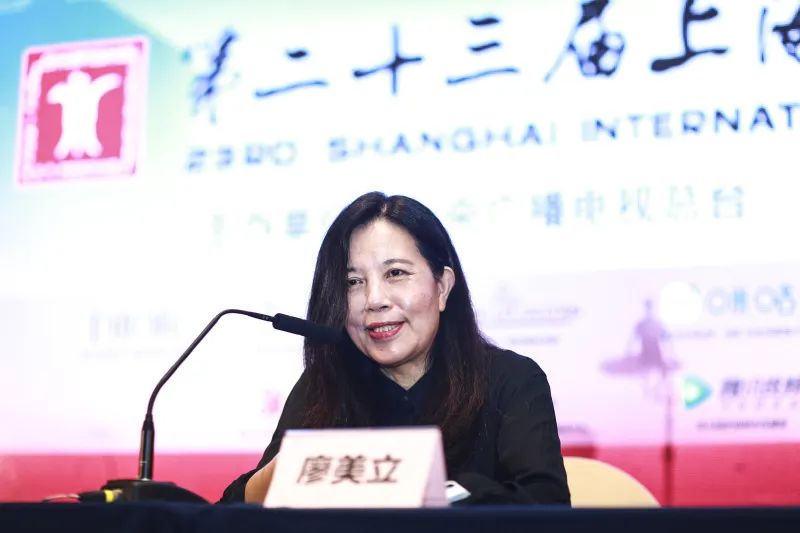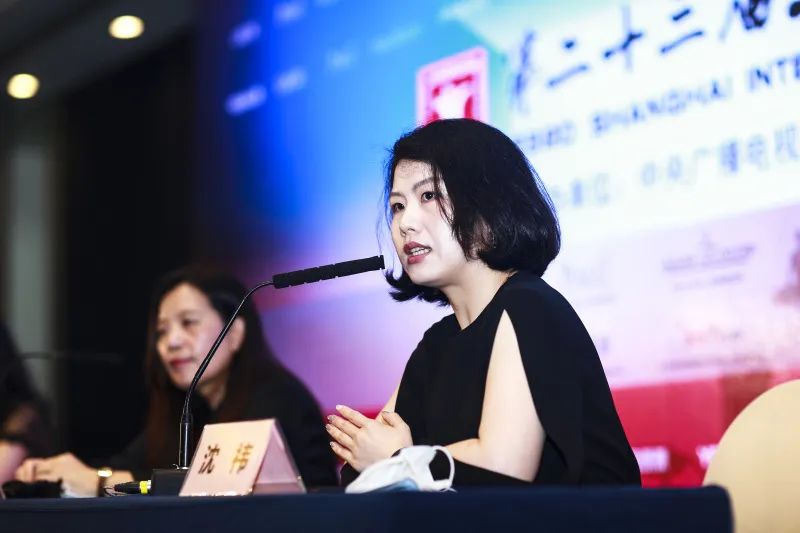2020-07-26
Golden Goblet Award Official Selection|LIKE THE DYER’S HAND – a biographical film of Florence Chia-y
Among the official selection for the Documentary category of the Golden Goblet Awards, LIKE THE DYER’S HAND was screened at Shanghai International Film Festival (SIFF) today. Producers Liao Meili and Shen Yi attended the after-screening meeting to share with the media the stories in front of the camera and behind the scenes. When they quoted Ms. Florence Chia-ying Yeh’s words during the shooting "As long as I am still alive, I will try and pass on the beauty of Chinese poetry to everyone", the reporters present were all touched.
LIKE THE DYER’S HAND is the only biographical film authorized by the 96-year-old Ms. Yeh. The film records the ups and downs of Ms. Yeh as a master of Chinese classical literature and promotes the profound cultural and historical value of Chinese poetry. As a scholar and teacher of classical Chinese poetry, Ms. Yeh has played an important role in connecting the past and the present and the East and the West. She is not only a student thirsty for knowledge, but also a teacher with students all over the world.
The film is directed by Tsun-Shing Chen, who also directed part of THE INSPIRED ISLAND series. Since he first met Ms. Yeh, he led the crew to Beijing, Tianjin, Xi’an, Luoyang, Hong Kong, Taipei, Vancouver, Boston and other places for 17 in-depth interviews with and filming of the scholar of classical poetry. For the film, they interviewed dozens of Ms. Yeh’s relatives, friends and students, including cultural figures such as Pai Hsien-yung, Xi Murong, Ya Xian, and the famous sinologist Stephen Owen, trying to present Ms. Yeh\'s simple lifestyle, creative energy, and admirable character.
Liao Meili and Shen Yi recalled that they were most impressed and inspired by Ms. Yeh\'s "beauty of fragility and morality" during the filming. The so-called "beauty of fragility and morality" refers to how the vulnerable scholar has been steadfast in her personal beliefs in times of turmoil. "This is the deepest impression we have of Ms. Yeh in every shooting. Even though she was over ninety years old at the time of shooting, she showed her strong willpower. She often worked until two or three in the morning, preparing for the next day’s interview. She was very curious about the art of cinema, and often asked us questions about filming. The film also includes the footage of her insisting on shooting after suffering injuries from a fall," they said. "The beauty of fragility and morality" is also an important concept that the film wants to convey to the audience.
" This film can be said to extend from Ms. Yeh\'s personal history to the entire history of classical Chinese poetry." According to Shen Yi, the film is divided into seven chapters and eight segments with each chapter named after one of Ms. Yeh’s residences, which constitutes her personal history and echoes the overall history of classical poetry. “The movie is like a huge maze and Ms. Yeh is the huge treasure that the audiences are searching for. In doing so, they need to pass through many corners of history, where they get surprises, to finally find their own treasure."
The music score of the film was composed by Japanese musician Somei Satoh, and was inspired by Du Fu\'s Eight Octaves on Autumnal Musings. Liao Meili believes that Somei Satoh’s composition "is not background music, but implies the third narrative line of the film. Collected Commentaries on Dufu\'s Eight "Autumn Meditation" is one of Ms. Yeh\'s most important works. The Eight Octaves on Autumnal Musings by depicting the scenery and people give a glimpse of the rise and fall of the prosperous Tang Dynasty. In the film, the poems are used as a metaphor for Ms. Yeh’s life story moving from Beijing to Taipei, to North America before finally back to the motherland, the epitome of an era.
Both Liao Meili and Shen Yi were pleased that LIKE THE DYER’S HAND was nominated for the Golden Goblet Award, and said they would strive for the film to be released by the end of the year. They said that they are not worried that the film will have a small audience for being a “highbrow” subject, as audiences especially females who like classical Chinese poetry will definitely come to see the film, because it exudes the beauty of classical Chinese poetry and excellent traditional Chinese culture. They said, “Although the film talks about Ms. Yeh and the history of poetry, it’s not too highbrow. As the director himself said, essentially, it is a film about Ms. Yeh as a woman who has very rich life experience in nearly a century, going through wars, and living in China and the West. Hers is a life sustained by and in pursuit of the beauty of poetry."










